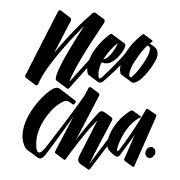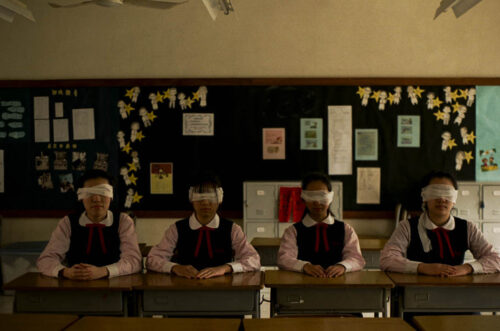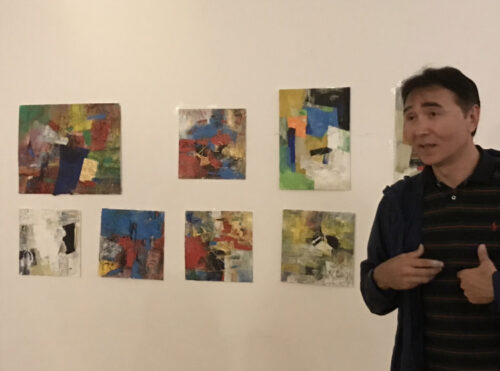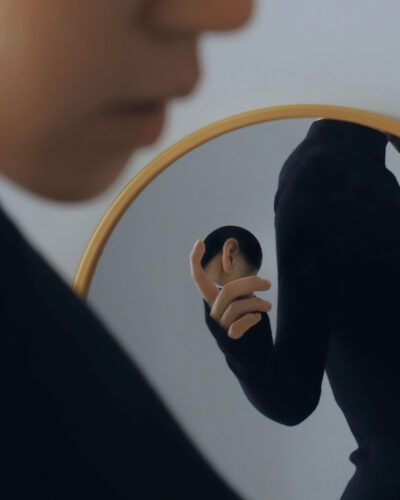
By appropriating classic masterpieces and adding his own contemporary context, Cai tinges his paintings with a sense of playful mischief.
This article was originally published on Neocha and is republished with permission.
Chinese artist Cài Zébīn 蔡泽滨 deals in the fantastical. At times, it can be difficult to discern whether his work is mocking satire or fine art. Take, for example, the oversized hydrating face mask, proudly showcased on the lawn of Shanghai’s Capsule Gallery as part of his 2020 exhibition A Revisit at 2 bis rue Perrel. Pinned to a simple clothesline, the thin mask drifts freely in the wind. The lack of context tugs at the curiosity of passersby, coaxing them into the gallery.
China news, weekly.
Sign up for The China Project’s weekly newsletter, our free roundup of the most important China stories.

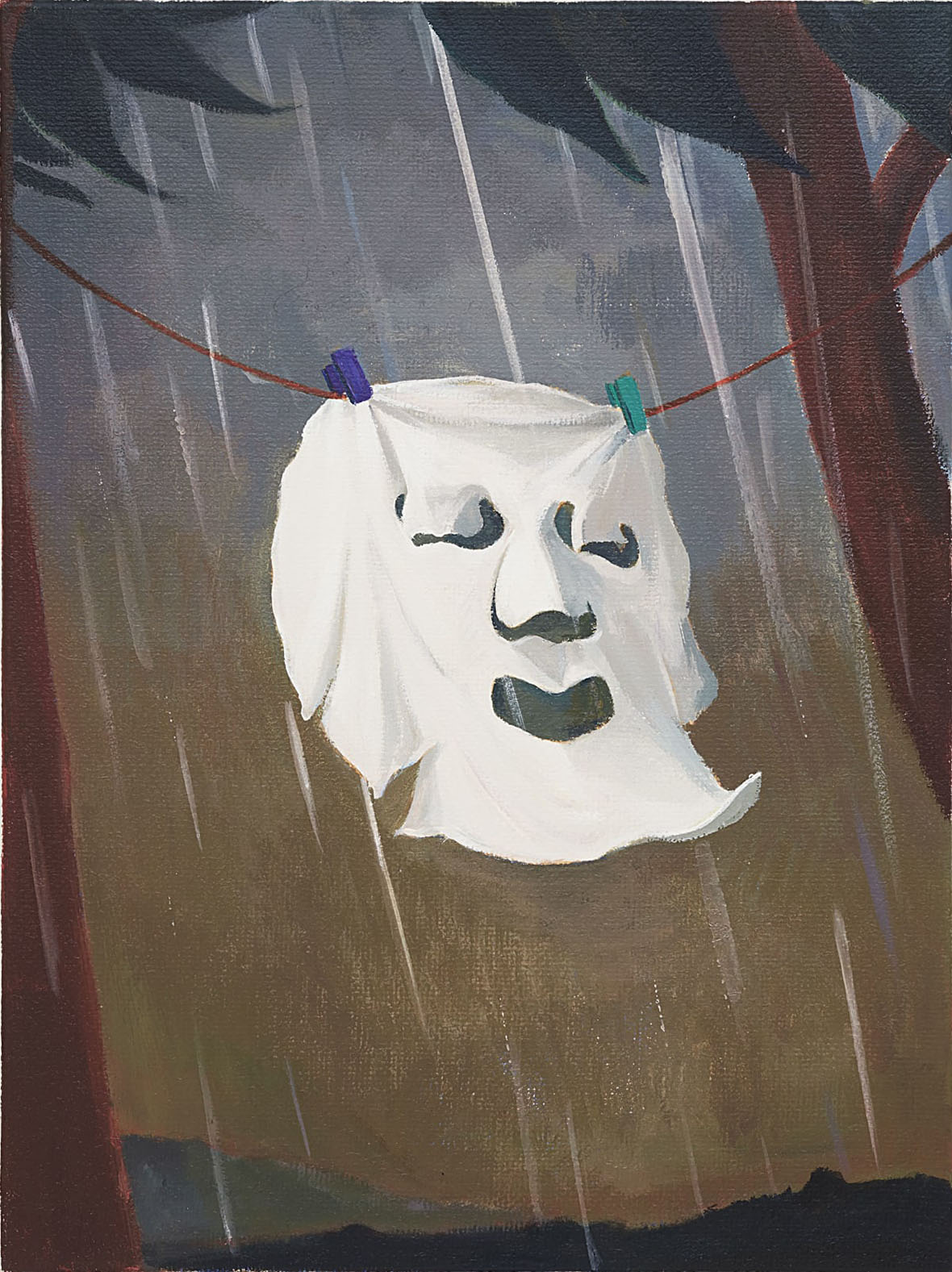
Inside, Cai’s paintings can feel similarly puzzling at first: a snake charmer doing her best impression of Medusa, semi-flaccid candles that wind around arms and poles, and apples that call to mind both Snow White and the Book of Genesis. Stylistic influence from past greats, such as Henri Rousseau, Salvador Dali, and René Magritte, abound his paintings.
By appropriating classic masterpieces and adding his own contemporary context, Cai tinges his paintings with a sense of playful mischief. These appropriations can at times feel irreverent, offensive even, but Cai’s aim isn’t to offend. “I have the utmost respect for classic art,” he says. “Though it’s sometimes thought that following too closely in the footsteps of past greats may be creatively impeding.”
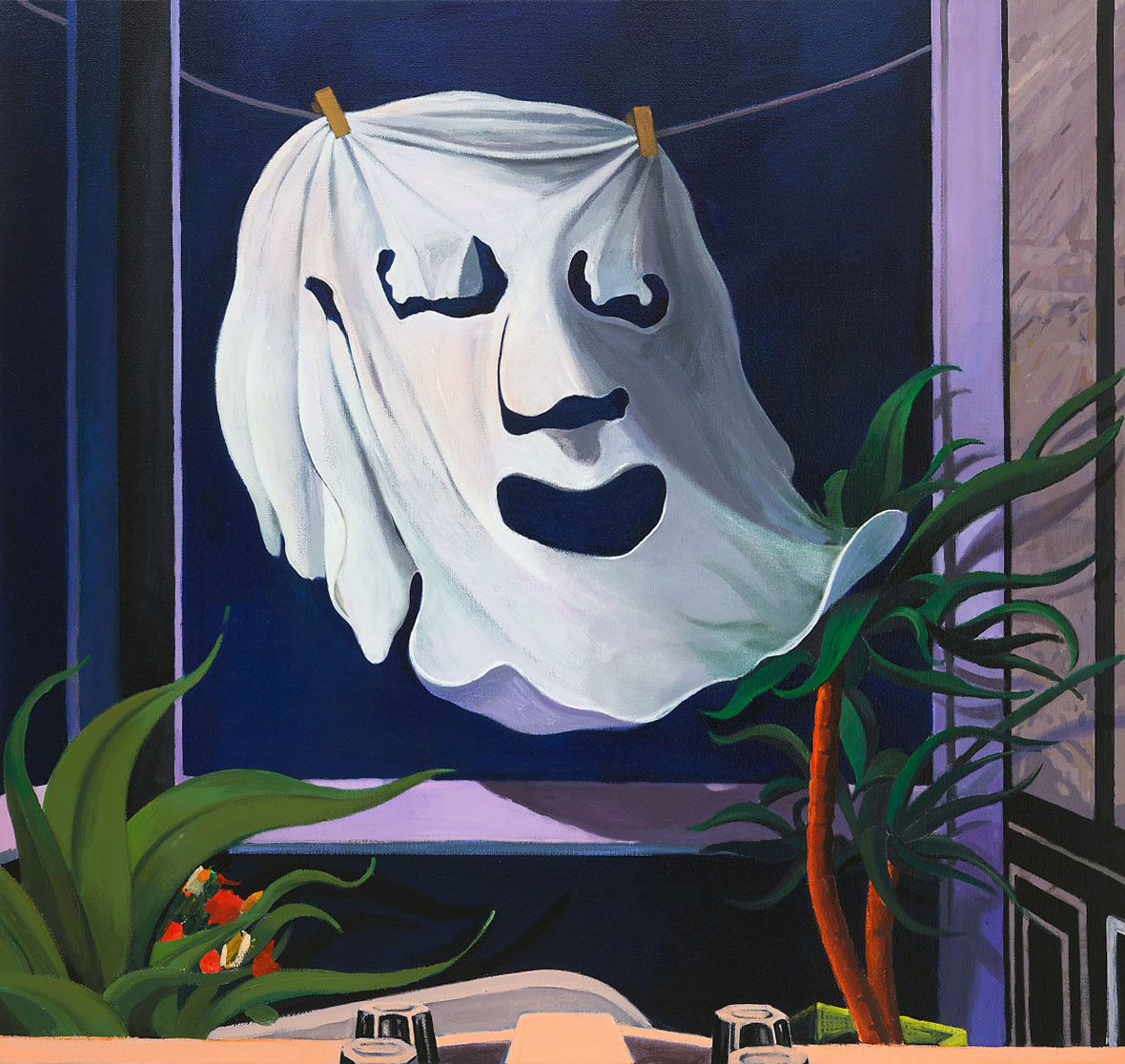
Henri Rousseau’s The Wedding Party, for example, has directly inspired several of Cai’s works in the new show. In Rousseau’s 1905 painting, the bride—in a white wedding dress—stands in the center of the composition. The wedding dress, set against the all-black attire of the accompanying guests and saturated colors, seems afloat. Cai was fascinated by this ethereality and wanted to convey a similar sense of weightlessness in his works. The Breeze series—in which suspended sheet masks are shown in similarly airy fashion—was the resulting work.
The black dog in the foreground of The Wedding Party was also another creative catalyst. In Cai’s Confusion at Midnight, he swaps the dog for a black feline, and rather than resting on a grassy lawn, the cat is perched atop a ghost’s head. “The cat was drawn as dark as possible,” he says. “I wanted the ghost to be overwhelmed as if he was suffocating.”
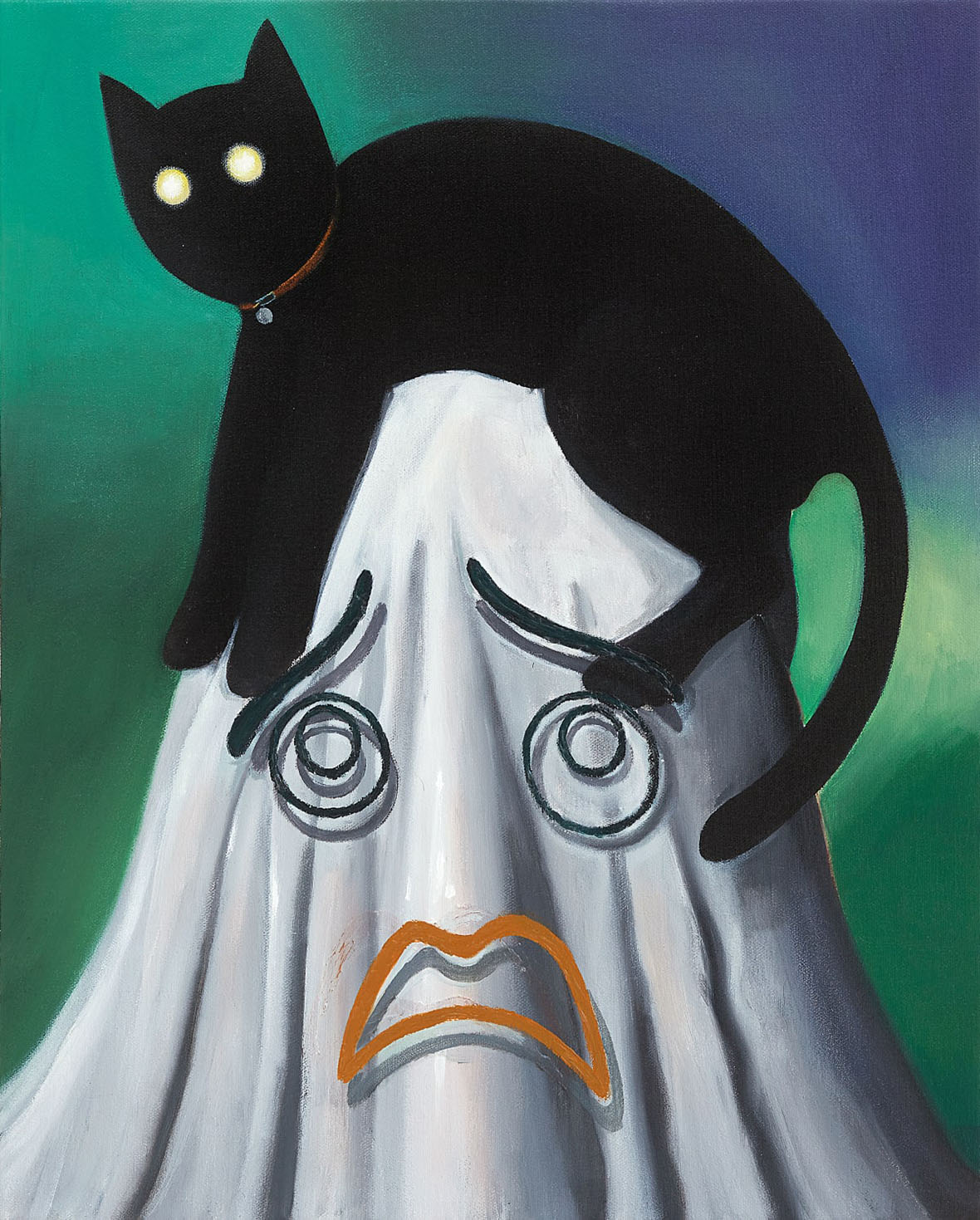
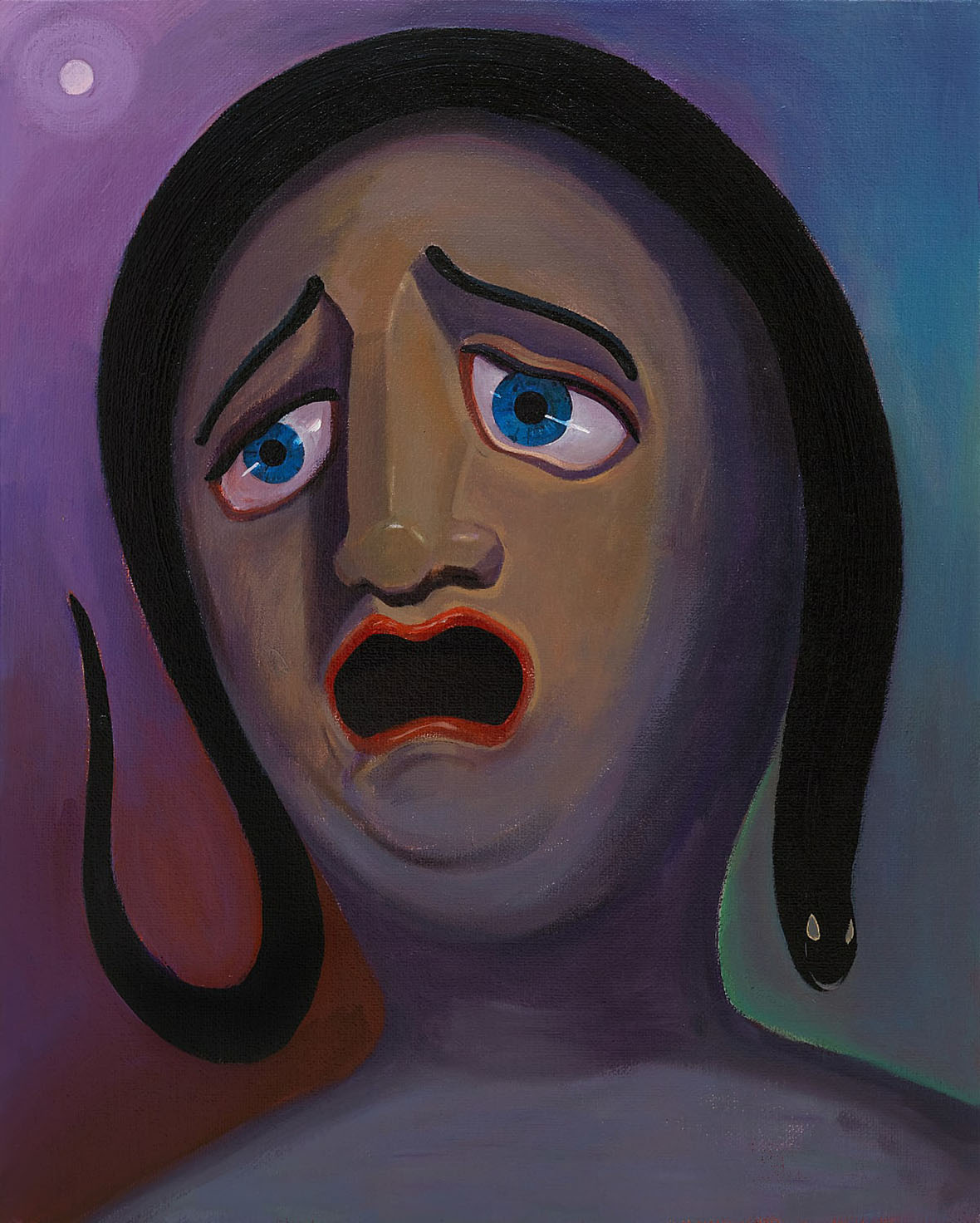
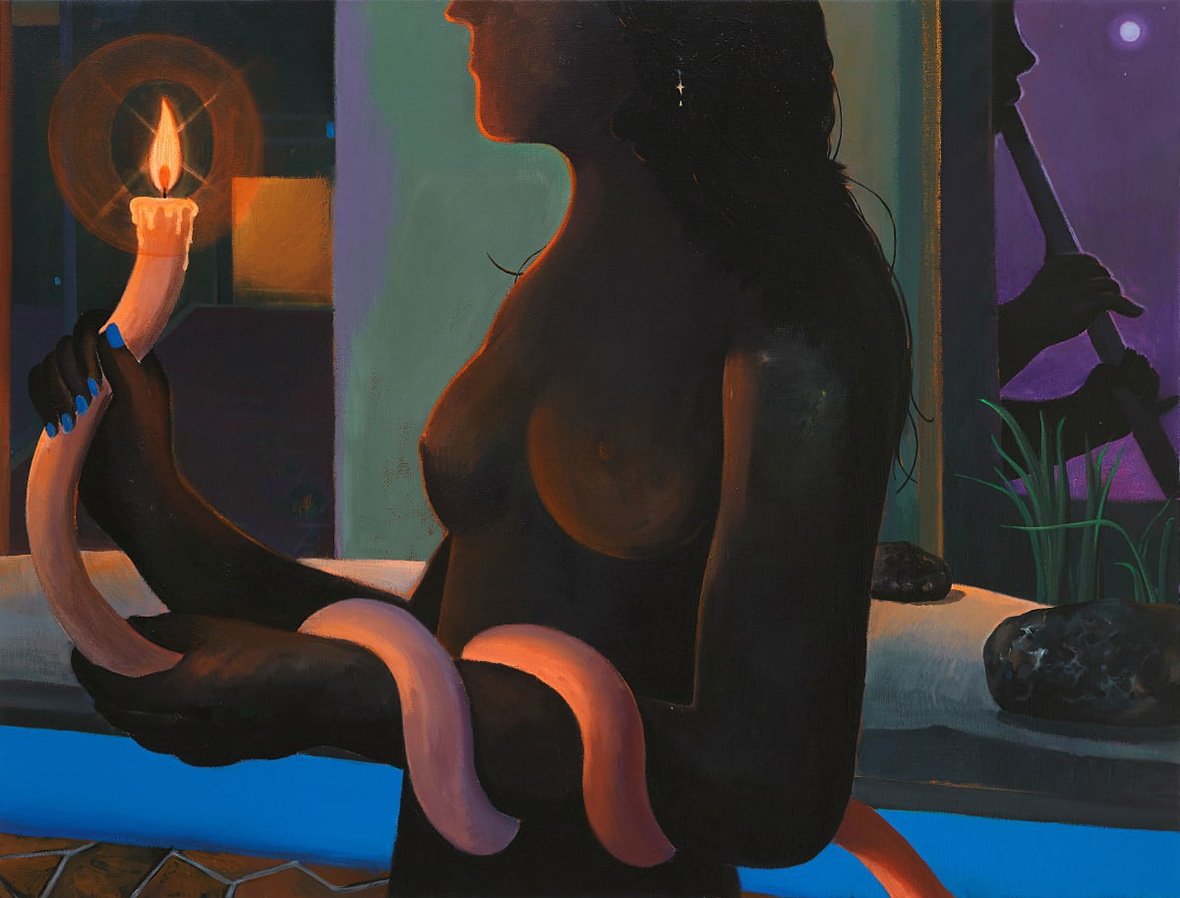
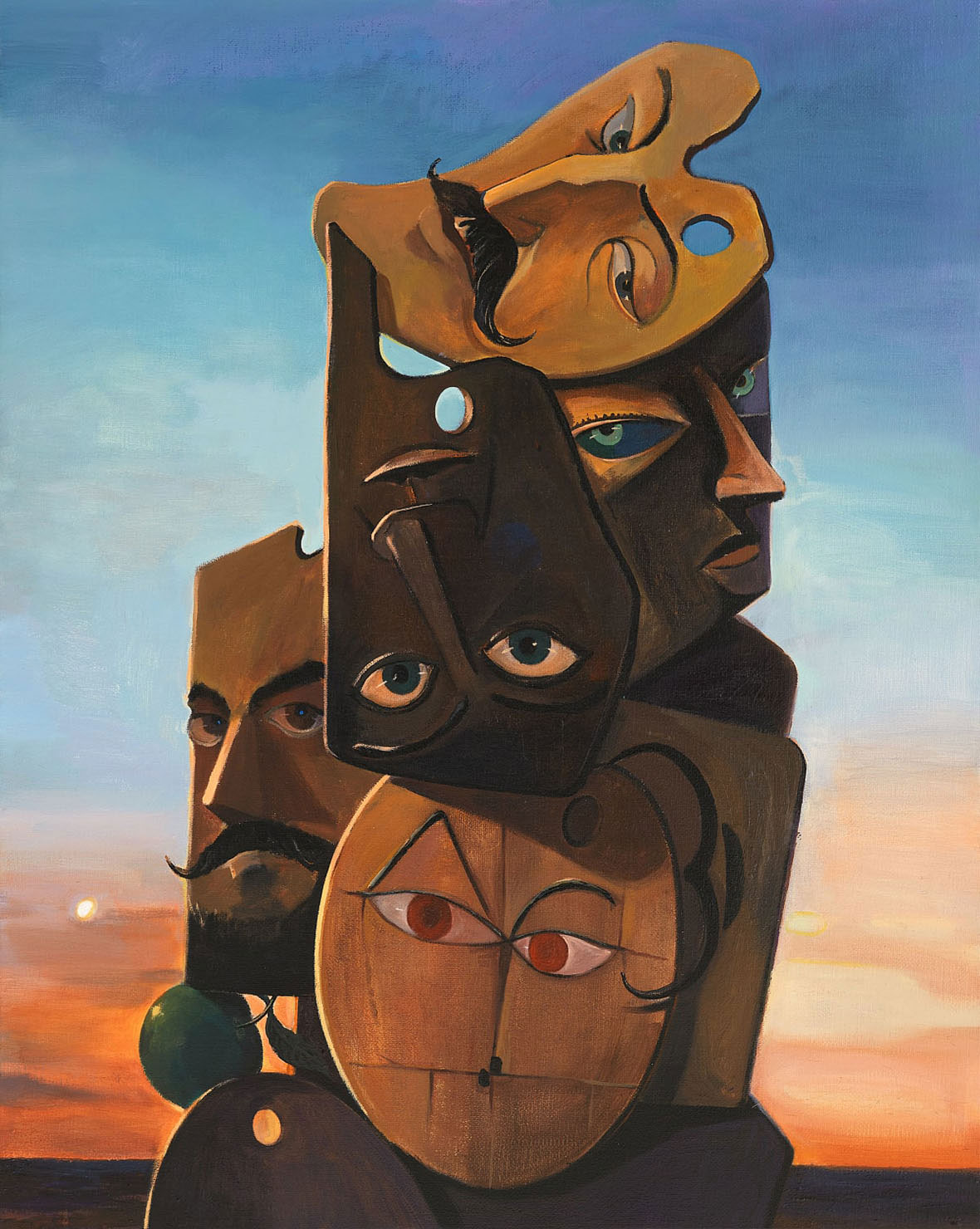

Cai references common visual motifs of classic art throughout his new exhibition. Snakes, apples, candles appear again and again, though they’re often infused with contemporary context. In Snake Charmer #3, the woman is overjoyed by the coils of snakes draped atop her head, a reference to the mythological Medusa. But the red snake is drawn in the likeness of the Gucci cobra while the blue snake is drawn in the form of the Alfa-Romero’s logo; through these symbols, Cai pays a tongue-in-cheek tribute to modern consumerist culture.

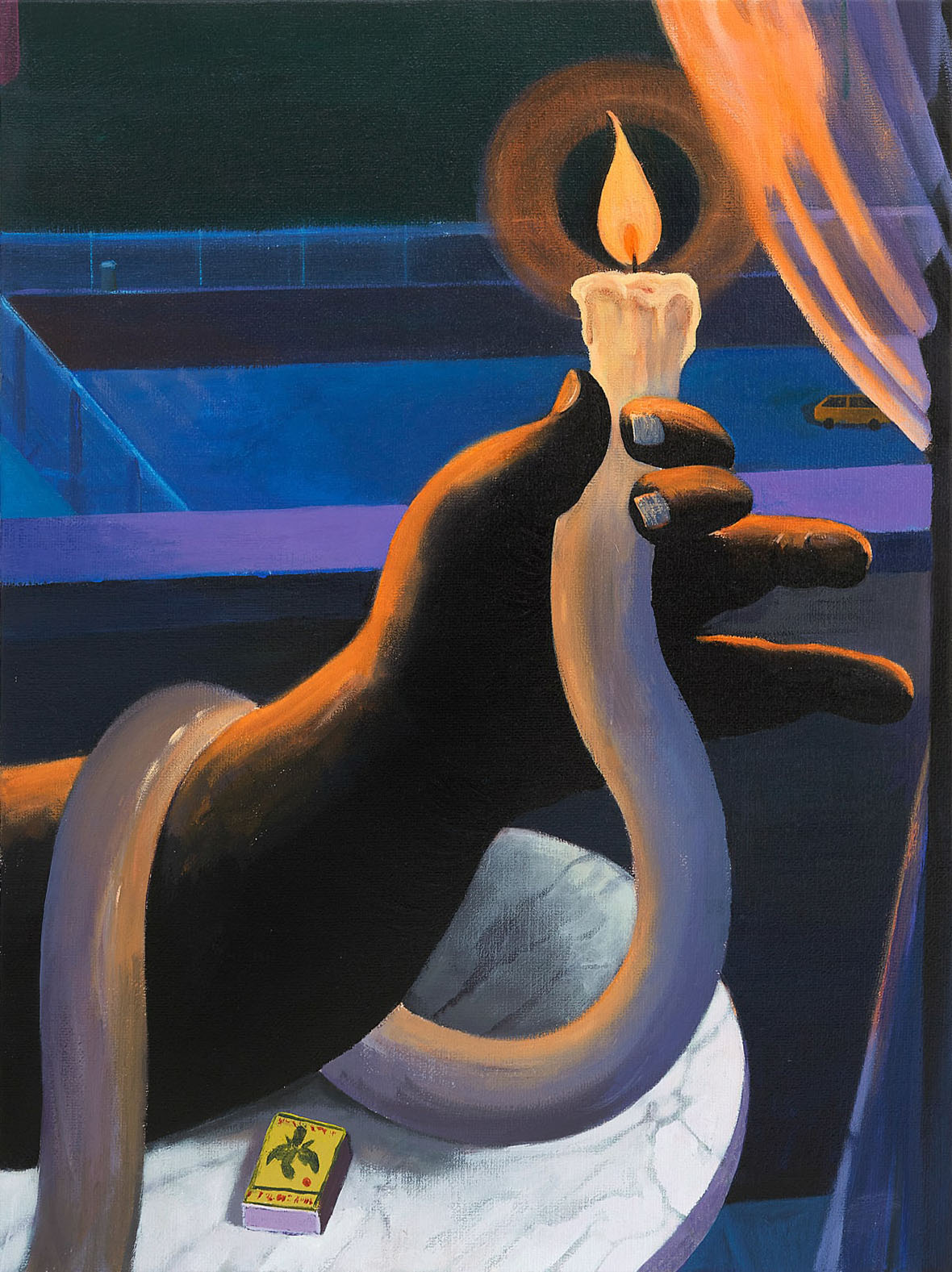

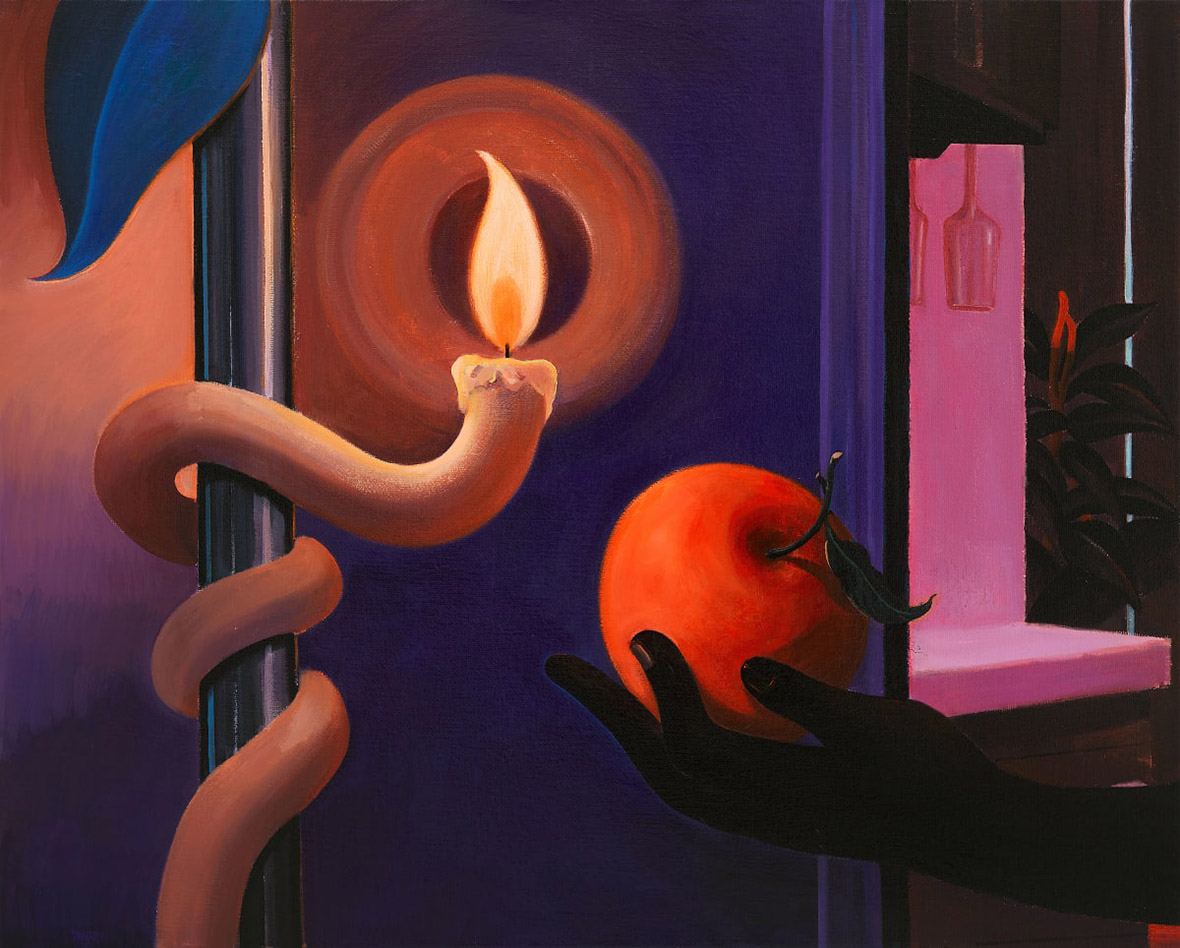
Classic art may be a defining aspect of Cai’s work, but his appropriations also transform ordinary objects into the extraordinary From an apple lit by candlelight to painter palettes as faces, his art elevates the mundane into brow-raising visuals. “Painting is an unhurried language, and a little humor can reshape it in surprising ways,” he says.
Looking at the facial masks that appear in Cai’s exhibition again, they actually don’t seem all that spectacular. It’s just an ordinary object bobbing about in the wind. Yet strangely enough, under Cai’s brush, they become something quite memorable.
Like this story? Follow neocha on Facebook and Instagram.
Instagram: @caizebin
Contributor: Chen Yuan
Images and Video Courtesy of Capsule Shanghai
